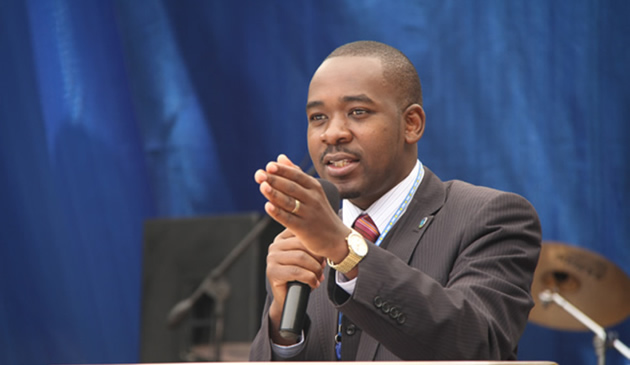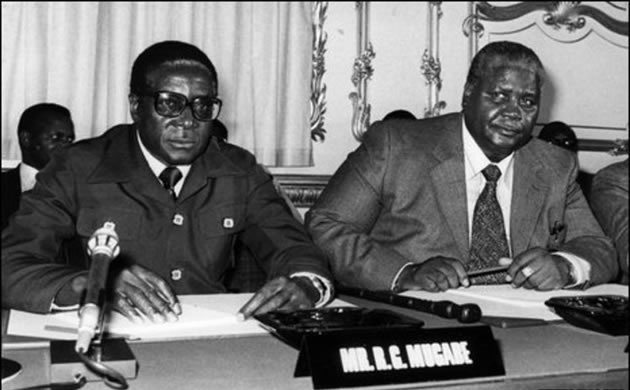Finally, ZBC comes to the party

Lloyd Gumbo Mr Speaker Sir
Finally, the electorate will be the judges, courtesy of ZBC. The decision by the public broadcaster to give live television coverage to parliamentary question time every Wednesday and radio coverage by Spot FM for ordinary sittings from Tuesday to Thursday when the House is sitting will make and break some of our representatives in their chosen political field.
In the same way that people have been glued to their television screens to follow the trial of South African athlete, Oscar Pistorius, accused of killing his girlfriend Reeva Steenkamp and making conclusions where they think the athlete is lying, the electorate will also have the same platform to assess if the votes they cast are worth of the men and women they sent to Parliament.
Live television broadcast coincidentally came several days after MDC-T legislator for Kuwadzana East, Nelson Chamisa moved a motion calling for live and recorded coverage of parliamentary proceedings, indicating the plans were already underway.
Steering the motion, Chamisa said live broadcast would allow the electorate to see representatives who go to Parliament to sleep.
“It is very important that when Members of Parliament choose to confuse or mistake Parliament for a bedroom, the people are given the right to see who is converting Parliament into a bedroom and who is indeed, going to Parliament to do the work that they are supposed to do,” said Chamisa.
Indeed, some have gone for the five year period ducking and diving, with some not even making the maiden speech as they maintain a not so golden silence in the august House.
In the past, people have spoken of seeing legislators come and go, now that there will be live television coverage for at least question time, I reckon we will watch them come and sink. True, those who play with the minds of the electorate will pay the price.
We should expect a stampede where MPs, some of whom have never uttered a word before, will try to get their faces beamed as they ask questions so that people from Chirumhanzu to Chiendambuya, Mberengwa to Mbungo, Filabusi to Fairfield will watch them appear to be doing something in Parliament.
But it’s not just about one opening their mouth that will do the trick; raising relevant issues will win the hearts of the people.
Our MPs can no longer drive to Harare just to collect fuel coupons or to sleep in hotels.
Now they are forced to be accountable to the electorate whether they like or not.
Ben Dupre in “50 Political Ideas You Really Need to Know” says: “Today, almost every action of an elected politician is affected to some degree by consideration of how it will be portrayed in the media”.
Every opportunity given to a politician, be it at a rally, in the House, their public appearance, is a media event which, if used properly, is a photo opportunity, a potential sound bite to be broadcast 24-7 on various news channels.
It is in this regard that our MPs must be warned that the days of slumber are numbered and that this does not give them an opportunity to abuse others under the cover of free speech and parliamentary privilege.
Neither is it the time to just stand up in the august House to waffle.
Journalists have bashed MPs for sleeping and heckling during parliamentary sittings while ministers have not been spared for bunking question time. Some MPs are conspicuous by their presence in physical form but conspicuous by their absence when it comes to contributions.
There are MPs who rarely debate motions and the only time they do so is when they heckle or when they affirm adjournment of the House.
Now that the electorate will be able to see what their representatives do in Parliament, it marks an important milestone in our democratic processes.
It is clear that the latest development will have valuable impact as far as parliamentary business is concerned.
First, this will likely result in more attendance by ministers, some of whom had mastered the art of bunking question time due to reasons best known to themselves.
Some people argue ministers do so out of fear that their ineptness would be exposed when backbenchers ask questions. But if that is the reason, then we are likely to see fewer and fewer ministers attending question time. At least the electorate will know which ministers understand their mandate.
This is the only time that they can prove to the Zimbabwean populace that they have been pulled out of a pool of able men and women to champion the cause of Government.
If indeed, politics is the art of persuasion, this is the time they can prove that they are able to stamp their authority in view of the distressing ‘salarygate’ that manifested under their noses.
Second, the development will see MPs ask better researched and constructive questions than petty ones some legislators were fond of, as well as informed debate.
For too long, some MPs have abused question time sessions to ask things that have no substance at all, leading to successive Speakers consistently reminding MPs to ask relevant questions. This will also minimise the unnecessary heckling that had become the order of day in our august House.
Third, Section 141 of the Constitution states that “Parliament must; (c) conduct its business in a transparent manner and hold its sittings, and those of its committees, in public, though measures may be taken to regulate public access.”
Live coverage of plenary proceedings is therefore one of the best ways of opening up Parliament to citizens, as such would empower them to play a significant role in the law-making process.
I salute the ZBC, I salute the endeavour but I do not envy the pain that will come with it to some of our sleeping MPs.










Comments